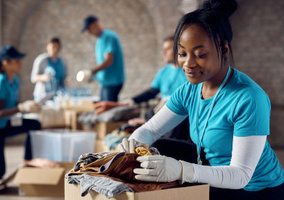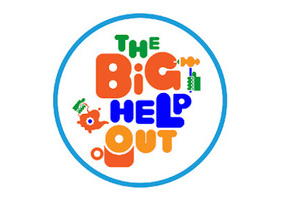Volunteers are at the heart of the work we do at Diabetes UK. We have around 2,000 of them working across more than 100 different roles, reaching into communities, towns, and cities to provide support and services that would otherwise be impossible to offer.
With such a wide network of volunteers, adopting a unified approach to volunteering at Diabetes UK was something we knew we wanted to achieve. We found that even with best practice documentation to provide a framework for our teams, there was room to improve our ways of working that would offer a more consistent experience.
Our processes were ticking many of the right boxes, but in vastly different ways and with lots of time consuming work involved.
Embarking on a digital transformation journey gave us the opportunity to review all stages of our volunteer experience, from how we attract volunteers, through to the recruitment process, our communications, onboarding, and beyond. It was a chance to reset and improve how we collaborate in a more joined-up way.
Improving processes
We knew volunteers were often getting different experiences depending on which part of the country they were applying from, so we took a closer look at the ways they were interacting with the charity.
To manage our applications, prospective volunteers needed to download, fill in, and email a Word document, at which point a member of staff would copy that information into a generic CRM, to store the application form, before it was processed officially. There was a lot of effort involved, and there was potential for different versions of the documents to exist across the organisation which opened up room for error.
Shifting to a specialised volunteer management system (VMS) three years ago means everything from volunteer applications to assigning tasks has now become streamlined. But perhaps more importantly, it is now consistent across the whole organisation.
Standardising our roles across the charity has left us space to review our offering and welcome volunteers into new areas of the charity. We still have opportunities in campaigning and fundraising, but we have managed to open up new roles in researching and clinical audits too.
We have seen a huge increase in the uptake of these roles in the last 12 months and we can now roll them out anywhere in the country. This is made simpler by pre-determined role profiles that contain clear and consistent messaging around what the roles entail and how this work will help impact people living with diabetes.
Maintaining GDPR compliance is another key consideration when gathering and storing sensitive information. Under our old system, some volunteers would be asked a broad range of questions during the application process which were not always relevant, meaning we had a lot of unnecessary information on file.
By changing our application process and building customised questions for each role, we were able to identify what information we needed for each opportunity. This meant we could assess if an applicant was suited to a role before we asked for more specific information, such as dietary requirements, for example.
With our VMS, we can automate other steps to help protect personal data. For example, deleting application information at the end of a set retention period means that we do not keep unwanted data on people that no longer volunteer or were unsuccessful.
Bringing people together
One thing that has made a big difference in creating a community feel is our news feature. We send out regular updates on diabetes news, including new research and the work of the charity, and the stories of our volunteers. We also use it for sharing health and safety news, information on data security and safeguarding, and other ‘volunteering essential’ topics, so we know our volunteers have everything they need to do their roles safely.
With this framework in place there is a clear plan for showing volunteers how their work is having an impact and understanding how we can bring new people into our community.
Checking in with so many volunteers at once is no small task, so we use Assemble to send a pulse survey three times a year to better understand our volunteer experience. This allows us to track how our volunteers are feeling, where they might need more support, and how we can improve the volunteering at Diabetes UK.
Volunteers will always be at the core of our vision to create a world where diabetes can do no harm. By simplifying the barriers to entry and offering a great volunteer experience we can continue to attract and retain volunteers to continue this work.
Related Articles












